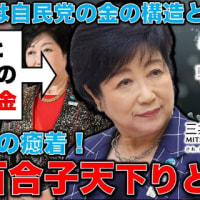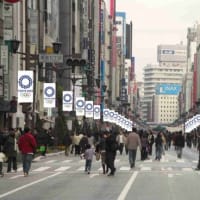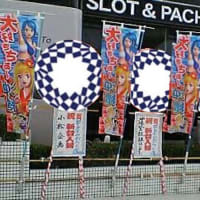パレスチナ戦争 ■ 日本は今やイスラエルとそっくり
https://kokuminrengo.net/2024/07/07/post-8742/
Palestinian War ■ Japan is now just like Israel
Israel, a Multicultural State
Let me begin with how I began my research on Israeli theater.
In 2010, when I was researching the relationship between Christian theology and theater theory in Europe, I first set foot in the land on a group trip to see the actual city of Jerusalem. My first impression was that it was an interesting country. Contrary to its image as a war-torn country or a “criminal state,” people from diverse cultures come and go, and synagogues, mosques, and churches coexist in the bustling city. On the other hand, what kind of plays are staged in the theaters of this country that is still at war and under occupation? So, I started going to the theater in 2012 to see plays.
If I specialize in talking about theater, I was even envious. With a population of 9 million, there are eight repertory theaters in a country the size of Shikoku, and the seats are almost always full. The ambitious small theaters, sincere productions, attractive actors, and the large presence of theater in society. Surprisingly, there are no censorship laws against theater (abolished in 1989), and there is a surprisingly high awareness of freedom of expression in general.
After the second intifada (2000), Israeli society is said to have begun a rightward turn. Nevertheless, in the early 2010s, as observed by the author, actors announced a boycott of appearances in settlement theaters, Palestinian author Ghassan Kanafani's “Back to Haifa” was staged, and the playwright even engaged in a social networking battle with the prime minister. And in Israel, where 20% of the population is Arab (practically Palestinian), there was even a program to allow schools to see plays by Arab theater companies for the sake of social harmony.
Of course, there are rightists who attack such theaters and theater people. But the leftist media and theater and drama people are defending freedom of expression in solidarity. At that time, people believed that the sign “the only democracy in the Middle East” was not false.
Theaters targeted first
However, as in many countries, Israeli society began to turn explicitly to the right in the mid-1990s. The first target was the theater.
In 2015, when the fourth Netanyahu cabinet was formed, funding was cut to an Arab theater company that was performing a play based on the poetry of Palestinian Walid Dakka (who died in prison this April after 38 years in prison), who had been imprisoned for nearly 30 years, and was forced to suspend its activities. The then Minister of Culture and Sports, Miri Regev, said, “We do not subsidize terrorists, traitors, or groups that support terrorism. Although many students had already seen the film in the aforementioned school program, then Education Minister Naftali Bennett (later the 18th Prime Minister) agreed with Regev and also removed “Border Life,” a novel about a love affair between a Jew and a Palestinian, from high school materials. Naturally, the liberal class rebelled. But this trend eventually took hold.
Then, in 2017, a decisive incident occurred. The play “Prisoners of the Occupation,” written and directed by Einat Weizmann, which was scheduled to premiere at a theater festival in the northern city of Akko, was removed from the program. This was another semi-documentary play about Palestinian prisoners, but the city's executive committee decided to exclude it based on the title alone.
Then came October 7.
The following year, the “Jewish State Law” was enacted, and the exclusionary nature of “Israel as a Jewish state” was legally confirmed. The year 23 began with weekly anti-Netanyahu demonstrations by tens of thousands of citizens. But in the West Bank, settler violence, backed by a far-right national security minister, continued to radicalize.
Then came October 7.
On that day, I was in Tokyo preparing for a reading of my translation of the Israeli play “The Killing of Isaac” by Moti Lerner (directed by Nanao Kobayashi). It is a music play, and one of the lyrics of a song in the play goes like this: “We are the living dead.
We are the living dead, invisible faces
From the war of '48, from the war of '56
We all fear death, but we fear life more
Since the war of '67 Since the war of '73
The four decades refer to the first four Middle East wars. The Killing of Isaac” is a musical play about the assassination of Prime Minister Yitzhak Rabin (1995), which brought about the Oslo Accords, by people whose battlefield trauma has kept them in psychiatric wards for decades. The play was completed and performed abroad in 1998, but no theater in the country still performs it, because it is so provocative, comparing a nation that killed Rabin, elected Netanyahu, and chose war to a huge mental institution.
Happy if you don't see it!
Let's talk about Okinawa.
When asked what Israelis think about the reality of the occupation, he replied, “There are things that you know but you can't do anything about, and you can be happy if you don't look at them. In Japan, it would be like Okinawa.”
The author answered that.
In 2022, when he was about to travel to Israel due to the Corona disaster, he began attending that Okinawa.
Why is Okinawa closed on Memorial Day? Shouldn't it be a “national holiday” for people on the mainland to mourn the sacrifices made in Okinawa? With this in mind, I decided to take a day off from work around June 23 to go to the main island to participate in a memorial service and a live memorial concert. The reason I decided to extend my trip to the remote islands was that in the spring of 2011, at an online event for private university faculty members from around the country, I was told, “In Ishigaki and Yonaguni, missiles are driving on public roads. Yet the media on the mainland don't even report it. In June, I visited the islands to see for myself. I asked Mr. Hitoshiro Motoyama, with whom I had just exchanged business cards, to act as my intermediary, and on Ishigaki Island I asked Mr. Shiro Hanatani, the city councilor, about the details of the base problem.
The readers of “Nihon no Shogo” will need no explanation for the rest of this article. While the author was troubled by the rightward shift in Israel, our border region has become a fortress for the Self-Defense Forces. A government that fosters fear of the “enemy,” a people who rely on power and force out of fear, and a far-right populism that scoffs at the left and praises militarism. ...... Japan now resembles Israel.
In that land, there is a social infrastructure where hundreds of thousands of people demonstrate against the government for months. And yet, they still fell into that ant-hill. Will Japan, clinging to its happy days without reporting, without resistance, have no choice but to be swallowed up?
Tangible Action.
This March, a nonpolitical women's university faculty member who studies Israeli theater will hold a symposium entitled “Which way is tomorrow on Ishigaki Island? and personally produced an event with journalist Shunichi Kawabata, Hanatani City Councilor, and Ishigaki Island musician Yoshitoo!
Although it is inferior now, Israel's former freedom of expression was something that theater people had always fought for and defended. As Japanese voters and teachers, let us return the respect for that with tangible actions. At the very least, we should not be asked in the future by current students, “Sensei, you knew what you were doing then, so why didn't you take action?
Translated with DeepL.com (free version)
https://kokuminrengo.net/2024/07/07/post-8742/























